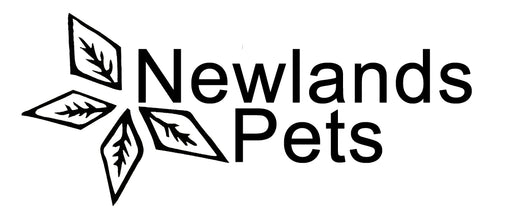If you’re confused or conflicted about what to feed your dog, it’s hardly surprising. There’s a bewildering range of dog food out there and so many claims and counter-claims about what’s best, how do you begin to choose? That’s where we come in. Think of us as your guide through the maze of options. How do we do it? Simple; we look to nature for the answer.
Your dog is a direct descendent of the grey wolves domesticated by our forefathers. Wolves evolved in a wild landscape, driven by their instinctive need for a diet of muscle, offal and bone, which they obtained by hunting for fresh meat and fish from prey. This was supplemented by foraging for berries, vegetables and herbs, all of which combined to create nature’s perfect recipe. And while thousands of years of breeding has produced countless shapes, sizes and different looking dogs, their internal workings remain unchanged.
The foods that we stock here at Newlands Pets mirror the richness, freshness and variety of proteins that today’s dogs evolved to eat.
Look into a dog’s mouth and you’ll see a set of teeth designed for ripping, tearing, shearing and shredding meat; further down, they have a stomach that can break down large chunks of protein and raw bones. It takes eight to nine hours for the whole digestion process in a dog, compared to up to 72 hours for a human, which is another reason why dogs rarely fall ill after eating rotten food – their digestive systems are stronger, more resilient and efficient than ours.
Maybe you don’t want to feed your dog raw food, and that’s fine – not every dog will take to it, so there are kibbles and wet foods that we can recommend. Many commercial brands include artificial colour, salt, sugar and flavourings in their dog food and contain a disproportionately high level of highly processed grain, such as wheats and other cereals. Compounding the issue, grains are often used as a cheap source of protein, in place of proper quantities of meat or fish. In fact, only around 15% of UK dog food is grain-free.
Almost all of the foods we stock are grain-free. This is why:
Eliminating grains from your dog’s diet can dramatically improve their physical & mental health, because, in simple terms, grain free dog food is easier to digest. Choosing a grain free diet can also result in less bloating & odorous wind from your dog, as well as reducing the likelihood of leaky gut. There’s also evidence that a grain free diet can help with conditions such as inflammatory bowel disease, skin diseases, allergies, constipation, diarrhoea, lack of appetite, lack of energy and many chronic health complaints
Dog food that excludes grains generally contains fewer carbohydrates, which means less inflammation. Inflammation associated with bloating, intolerances, sensitivities & behavioural issues. Many vets also associate grain-based diets with elevated cases of pancreatitis in dogs. The best diet you can feed your dog is one that avoids grains completely in favour of one packed with ingredients your dog was designed to eat.
